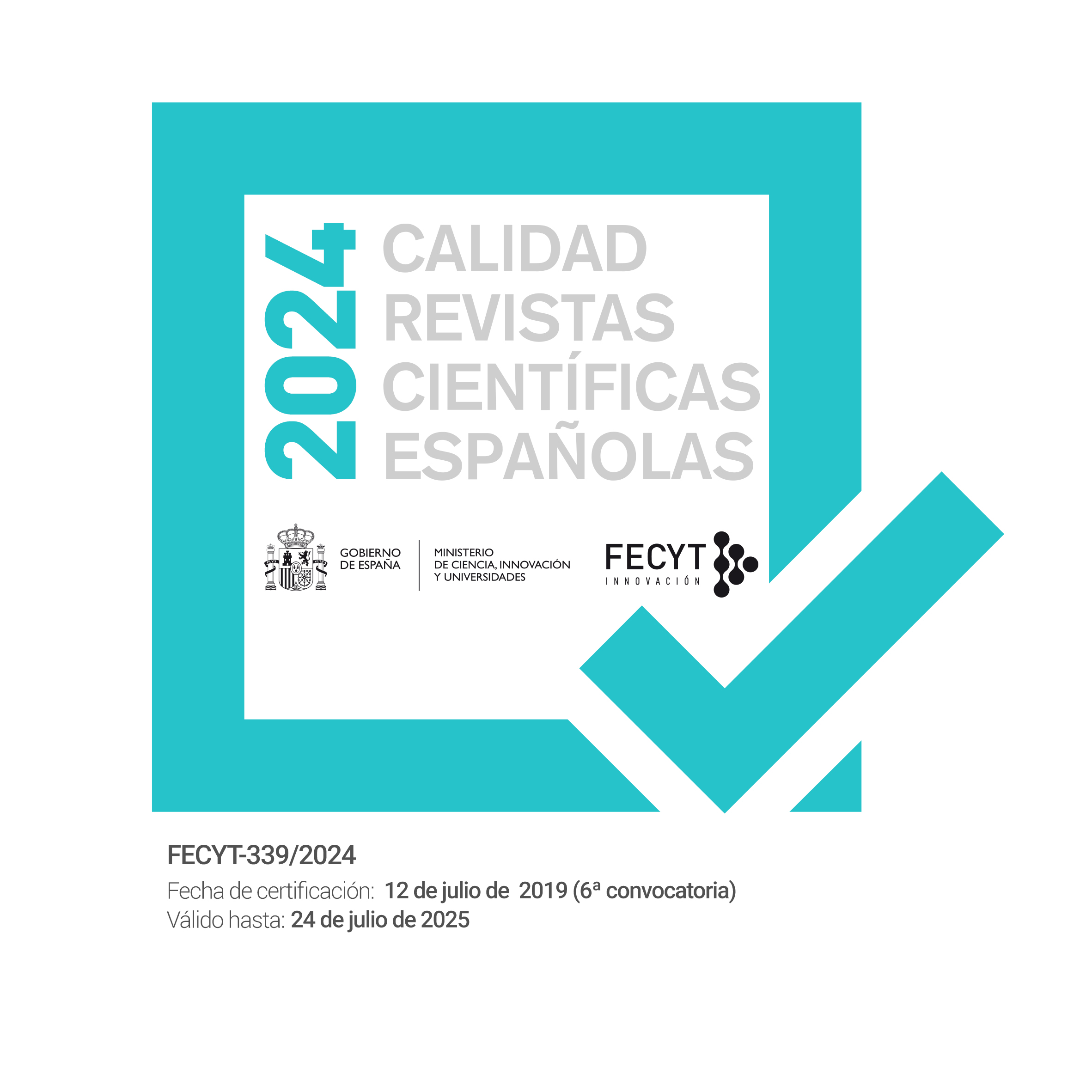Indeterminacy of meaning and political correctness
DOI:
https://doi.org/10.24310/Claridadescrf.v9i0.3690Keywords:
POLITICAL CORRECTNESS, AMBIGUITY, CENSORSHIP, INDIRECT SPEECH ACTS,Abstract
This paper takes as a starting point the fact that political correctness spread across the western countries in the same decade (1960-1970) in which the motto «Il est interdit d’interdire» got also trendy. And, since explicit prohibitions seem to be politically incorrect, politically correct language resorted to ambiguity and indeterminacy of meaning for prohibiting indirectly as well as other procedures such as the rewriting and/or the reinterpretation of some texts of the past.
Downloads
Metrics
Publication Facts
Reviewer profiles N/A
Author statements
Indexed in
-
—
- Academic society
- N/A
- Publisher
- Asociación para la promoción de la filosofía y la cultura en Málaga (FICUM) y UMAEditorial
References
Allas Llorente, José María y Luis Carlos Díaz Salgado (Coor.). 2004. Libro de estilo. Canal Sur Televisión y Canal 2 Andalucía. Sevilla: Ra-dio Televisión de Andalucía.
Aristóteles. 1970. Metafísica. Edición trilingüe (griego-latín-castellano) de Valentín García Yebra. Madrid: Gredos.
Bosque, Ignacio. 2012. «Sexismo lingüístico y visibilidad de la mu-jer», en El País Domingo de 4 de marzo de 2012, pp. 14-17.
Bowdler, Thomas. 1847. The Family Shakespeare, in one volume: In which nothing is added to the original text, but those words and expres-sions are omitted which cannot with propriety be read aloud in a family. Londres: Longman, Brown, Green, & Longmans, 9ª.
Bluhm, Heinz. 1965. Martin Luther: Creative Translator. St. Louis: Concordia Publishing House.
Casas Gómez, Miguel. 1999. Las relaciones léxicas. Tubinga: Max Niemeyer Verlag.
Casas Gómez, Miguel. 2002. Los niveles del significar. Cádiz: Uni-versidad de Cádiz.
Chamizo Domínguez, Pedro José. 2009. «Linguistic Interdiction: Its status quaestionis and possible future research lines», en Language Sciences, 31, pp. 428-446.
DRAE. 2001. 22ª edición. Disponible en: http://rae.es/
Fergusson, Rosalind. 1986. The Penguin Dictionary of English Sy-nonyms and Antonyms. Harmondsworth: Penguin.
Grice, Herbert Paul. 1989. «Logic and Conversation», en Studies in the Way of Words. Cambridge (Mass.): Harvard University Press, pp. 22-40 [1975].
Hill, Mark y Russell Sandberg. 2009. «Blasphemy and Human Rights: An English Experience in a European Context». Derecho y reli-gión, 4, pp. 145-159.
Hughes, Geoffrey. 2010. Political Correctness. A History of Seman-tics and Culture. Oxford-Malden: Wiley-Blackwell.
Hughes, Geoffrey. 2010. Political Correctness. A History of Seman-tics and Culture. Oxford-Malden: Wiley-Blackwell.
Kierkegaard, Søren. 1998. Temor y temblor. Traducción, estudio preliminar y notas de Vicente Simón Merchán. Madrid: Tecnos [1843].
Kinder, Hermann y Werner Hilgemann. 1971. Atlas histórico mun-dial. De los orígenes a la Revolución Francesa I. Traducción Carlos Martín Álvarez y Antón Dieterich Arenas Madrid: Istmo.
Koyré, Alexandre. 1977. Estudios de historia del pensamiento científico. Traducción de Encarnación Pérez Sedeño y Eduardo Bustos. México: Siglo XXI.
Lewis, John M. 2007. Galileo in France: French reactions to the theories and trial of Galileo. Berlín/Nueva York: Peter Lang.
Lynch, James y Bertrand Evans. 1963. High School English Text-books: A Critical Examination. Boston: Little, Brown and Company.
Machado, Antonio. 1984. Nuevas canciones y De un cancionero apócrifo. Edición de José María Valverde. Madrid: Clásicos Castalia [1924].
Merriam-Webster. Disponible en: http://www.merriam-webster.com/
Nestle, Eberhard y Kurt Aland. 2013. Novum Testamentum Graecum. Editio Critica Maior. Munster: Institut für Neutestamentliche Textforschung.
OED. 1989. The Oxford English Dictionary. Edición de J. A. Sim-pson y E. S. C. Weiner. Oxford: Clarendon Press.
Pérez-Reverte, Arturo. 2013. «Ese tenorio machista», en XL Sema-nal de 24 de noviembre, p. 8.
Quine, Willard Van Orman. 1960. Word and Object. Cambridge [Mass.]: The MIT Press.
Quine, Willard Van Orman. 1992. The Pursuit of Truth. Revised Edition. Cambridge [Mass.]: Harvard University Press.
Rojas, Fernando de. 1899. La Celestina. Tragicomedia de Calisto y Melibea. Edición de Marcelino Menéndez y Pelayo. Vigo: Librería de Eugenio Krapf [1500].
Russell, Bertrand. 1931. The Scientific Outlook. Londres: Allen & Unwin.
Schaff, Philip. 1882. History of the Christian Church, Volume VII. Modern Christianity. The German Reformation. Grand Rapids: Chris-tian Classics Ethereal Library.
Searle, John R. 1975. «A Taxonomy of Illocutionary Acts», en Keith Gunderson, (ed.), Language, Mind, and Knowledge. Minneapolis:
Uni-versity of Minnesota Press, pp. 344-369.
Shewmaker, Eugene F. 1996. Shakespeare’s Language. A Glossary of Unfamiliar Words in His Plays and Poems. Nueva York: Facts On File.
Downloads
Published
How to Cite
Issue
Section
License
Esta revista provee acceso libre inmediato a su contenido bajo el principio de hacer disponible gratuitamente la investigación al público. Todos los contenidos publicados en Claridades. Revista de Filosofía, están sujetos a la licencia Creative Commons Reconocimento-NoComercia-Compartirigual 4.0 cuyo texto completo puede consultar en <http://creativecommons.org/licenses/by-nc-sa/4.0>
Es responsabilidad de los autores/as obtener los permisos necesarios de las imágenes que están sujetas a derechos de autor.
Los autores/as cuyas contribuciones sean aceptadas para su publicación en esta revista conservarán el derecho no exclusivo de utilizar sus
contribuciones con fines académicos, de investigación y educativos, incluyendo el auto-archivo o depósito en repositorios de acceso abierto de cualquier tipo.
La edición electrónica de esta revista esta editada por la Editorial de la Universidad de Málaga (UmaEditorial), siendo necesario citar la procedencia en cualquier reproducción parcial o total.

















6.png)
